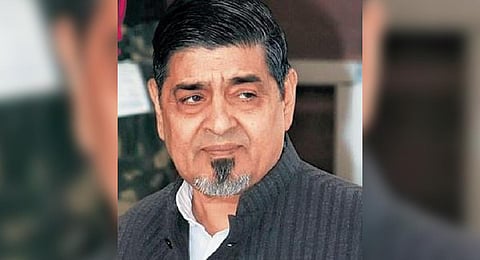

NEW DEHI: Congress leader Jagdish Tytler has approached the Delhi High Court, challenging a trial court's decision that framed murder and other charges against him in connection with the 1984 anti-Sikh riots. The charges, which include unlawful assembly, rioting, and promoting enmity, were framed following a Central Bureau of Investigation (CBI) charge sheet accusing Tytler of inciting violence at Pul Bangash Gurudwara on November 1, 1984.
Tytler, who appeared in the trial court and pleaded not guilty, has now filed a plea through his legal counsel, Advocate Vaibhav Tomar, seeking to overturn the court's decision. The plea argued that the order is "perverse, illegal, and lacks application of mind," further claiming that the charges were framed without credible evidence and that legal principles were overlooked.
Tytler also cited his deteriorating health as a reason for the plea, referencing multiple medical procedures over the years, including biopsies and a severe fall in 2021 that required hospitalisation.
The case is scheduled to be heard by Justice Manoj Kumar Ohri, while Tytler’s plea demands the setting aside of the trial court’s order, which the Congress leader claims was "mechanically passed."
In August, the trial court had directed the framing of charges under several sections of the Indian Penal Code (IPC), including 143 (unlawful assembly), 153A (promoting enmity between different groups), 188 (disobedience to an order promulgated by a public servant), 149 (every member of unlawful assembly guilty of an offence committed in prosecution of a common object), 295 (injuring or defiling place of worship), 380 (theft in a dwelling house), and 436 (mischief by fire or explosive substance with intent to destroy house, etc.) read with 302 (murder) and 109 (abetment) IPC.
However, Tytler has been discharged under Section 148 (rioting, armed with a deadly weapon) of the IPC. The court has scheduled the formal framing of charges for September 13, and Tytler has been directed to appear on that date.
The case traces back to the horrific violence that erupted in Delhi following the assassination of then-Prime Minister Indira Gandhi by her Sikh bodyguards on October 31, 1984. On November 1, 1984, a mob gathered near the Pul Bangash gurdwara, leading to the deaths of three people. According to the charge sheet filed by the Central Bureau of Investigation (CBI) in May 2023, Tytler, a former Union Minister, is accused of inciting the mob with inflammatory remarks.
The CBI’s charge sheet details testimony from a witness who alleged that Tytler arrived at the scene in a white Ambassador car and provoked the crowd by shouting, "Kill the Sikhs, they have killed our mother!" This incitement reportedly fueled the mob's fury, leading to the tragic deaths.